 Your new post is loading...
 Your new post is loading...

|
Scooped by
Gust MEES
|
Dès mai prochain, les données personnelles seront mieux protégées en Europe. L'occasion pour de nombreux services de commencer à se poser des questions sur leurs pratiques. Mais comment informer l'internaute sur la réalité des choses ? Nous avons décidé de lancer la réflexion.
Il y a un peu plus de deux ans, nous nous posions une question : et si on dépolluait Internet ? Nous notions en effet depuis plusieurs années que les sites devenaient de plus en plus impraticables du fait d'abus publicitaires et de méthodes douteuses comme la lecture automatique des vidéos ou l'auto-refresh.
Mais cette gêne visuelle en cachait une autre : la collecte massive de données, mise en place à travers les services des géants du Net (Analytics, boutons J'aime, etc.) et d'espaces publicitaires toujours plus automatisés.
Quel avenir voulons-nous pour Internet ?
On le voit aujourd'hui, chaque site peut déposer des dizaines de cookies sans le moindre consentement de l'utilisateur, le tout à travers une centaine de domaines tiers. Pour le vérifier, il n'y a qu'à utiliser des outils comme Kimetrak et regarder les données du navigateur (voir notre dossier).
Ainsi, comme on pouvait le craindre, l'Internet que l'on connaissait il y a 20 ans s'est profondément modifié sur trois points principaux : les plateformes y ont progressivement pris le pouvoir, il y est plus souvent question de commerce que de partage libre des informations et des idées, le tout alimenté par une immense collecte de données personnelles.
Comme c'est le cas dans certaines industries, il existe néanmoins des zones de « résistance ». L'information s'y veut en libre accès, elle doit permettre au plus grand nombre de réfléchir au monde d'aujourd'hui plutôt que suivre les derniers buzz, l'entraide et le travail collaboratif y sont des valeurs centrales et le financement se fait à travers des dons ou des abonnements, l'accès aux données n'étant pas considéré comme un « pétrole à exploiter ».
Malheureusement il n'existe pas vraiment d'élément distinctif fort pour ces sites et services, qui constituent une alternative au tout commercial qui nous entoure désormais dans le World Wide Web.
Un label pour l'Internet propre ?
Faudrait-il créer une sorte d'annuaire ? De label « bio » des services et autres sites en ligne ? Sans doute. Tout du moins faciliter l'accès et la reconnaissance de ces initiatives en fonction d'éléments qui peuvent être facilement vérifiés : structure économique, modèle de financement, trackers, dispositions légales à travers des outils tels que ToS;DR, etc. Learn more / En savoir plus / Mehr erfahren: https://www.scoop.it/t/luxembourg-europe/?&tag=GDPR

|
Scooped by
Gust MEES
|
Luxembourg, a tiny country with ONLY 590.667 inhabitants (January 2017) in the heart of Europe and one of the smallest countries in the world, WHERE MOST persons don’t even know where to find it on the map, shows up as an international country well known and recognized for its Cyber Security knowledge, as well as its skills in ICT. Learn more / En savoir plus / Mehr erfahren: http://www.scoop.it/t/luxembourg-europe/?tag=Digital+L%C3%ABtzebuerg

|
Scooped by
Gust MEES
|

|
Scooped by
Gust MEES
|

|
Scooped by
Gust MEES
|
Ever felt like you were being watched online? You know, like when you read something about New York, and the next site you visit shows you ads for New York hotels? As it turns out, on my computer, there were more than 130 companies tracking my every move (check yours here, then install this plug-in).
These companies are basically engaging in mass surveillance. Just as governments justify tracking us to prevent terrorist attacks, these companies are tracking us online, without our consent, because a marginal 0.7 percent of the population clicks on their ads.
And it’s not just online advertisers. From e-commerce websites to physical retail stores, everyone is now racing to capture more data about us. Don’t be surprised if your insurance company starts charging you more because of how it thinks you should live your life!
Don’t get me wrong, I use Facebook, Google and all those other services. I use them because I find them useful, fun or because I don’t have an alternative. But I do it knowing very well that I am partly giving away my right to privacy. Learn more / En savoir plus / Mehr erfahren: https://gustmees.wordpress.com/2013/12/21/privacy-in-the-digital-world-shouldnt-we-talk-about-it/

|
Scooped by
Gust MEES
|
Anybody who walks or drives past new tracking billboards with a mobile phone in their pocket can be spied on without their knowledge or consent: a potential invasion of privacy that US Senator Charles E. Schumer wants the US Federal Trace Commission (FTC) to investigate.
Schumer, a Democrat from New York, delivered a briefing in Times Square on Sunday, electronic billboards blinking and scrolling behind him.
From his remarks:
A person’s cell phone should not become a James Bond-like personal tracking device for a corporation to gather information about consumers without their consent.
No one wants to be followed or tracked throughout their day, electronically or otherwise.
These new “spying” billboards raise serious questions about privacy, Schumer said. They should be investigated by the feds, and the companies behind them should be required to offer an opt-out option for consumers who feel that they violate their privacy. Learn more / En savoir plus / Mehr erfahren: https://gustmees.wordpress.com/2013/12/21/privacy-in-the-digital-world-shouldnt-we-talk-about-it/ https://gustmees.wordpress.com/2014/03/05/often-asked-questions-are-there-cyber-security-dangers-with-apps-and-whats-about-privacy/

|
Scooped by
Gust MEES
|
Yup, I get it: The cloud computing train has left the station and there’s no stopping it now, but it certainly won’t reach Eurostar speeds if there aren’t enough cybersecurity professionals with the right cloud computing knowledge to support this transition.
Given this imbalance, what can CISOs do to support cloud computing business initiatives AND mitigate risk appropriately? Learn more /En savoir plus / Mehr erfahren: http://www.scoop.it/t/securite-pc-et-internet/?tag=Cloud-Security

|
Scooped by
Gust MEES
|
|

|
Scooped by
Gust MEES
|
Des dizaines de sociétés s’insèrent dans des applications banales pour collecter des données, amassant des informations sur des millions de Français.
Par dizaines, ils se nichent dans des applications mobiles utilisées quotidiennement par des millions de Français. Ils capturent discrètement des données, souvent personnelles, sans que les utilisateurs n’en soient nécessairement conscients, alimentant au passage une industrie opaque et méconnue. Certains de ses acteurs disposent de données sur des millions de Français.
Il s’agit de trackers, de petits logiciels incorporés dans des applications mobiles du quotidien (réseaux sociaux, médias, banques, sites de rencontre). Chaque application en compte 2,5 en moyenne, selon une analyse de plus de 350 applications, réalisée par un groupe d’activistes, rassemblés depuis octobre en association, et publiée vendredi 24 novembre sur leur plate-forme baptisée Exodus. Rares sont les applications qui en sont dépourvues et certaines vont jusqu’à en intégrer une quinzaine. Ce paysage n’est pas exhaustif : la plate-forme ne cherche que les trackers qu’elle a préalablement identifiés, soit une quarantaine. Learn more / En savoir plus / Mehr erfahren: https://www.scoop.it/t/securite-pc-et-internet/?&tag=Cyberespionage https://www.scoop.it/t/securite-pc-et-internet/?&tag=Privacy https://gustmees.wordpress.com/2013/12/21/privacy-in-the-digital-world-shouldnt-we-talk-about-it/ https://www.scoop.it/t/securite-pc-et-internet/?&tag=tracking

|
Scooped by
Gust MEES
|
Hundreds of websites record your scrolling behavior, clicks and movements according to a study recently carried out at Princeton University. Among these are The Guardian, Reuters, Samsung, AlJazeera and WordPress.com.
Most of us are aware that our searches, page views and even page scrolls are documented, but the report sheds light on how intricate that tracking can be. Using something called “session replays,” they record keystrokes and movements a user makes while they navigate a page — basically “looking over your shoulder,” but virtually.
The study, carried out by Princeton’s Center for Information Technology Policy, focused on some of the main companies that offer session replay services: SessionCam, UserReplay, FullStory, Clicktale, Yandex, Smartlook, and Hotjar.
It’s important to understand why this is dangerous — apart from straight-up invading your privacy. The report pointed out that most of these services directly exclude password input fields from recordings, but a lot of the time mobile-friendly forms are not redacted on the recordings, and end up revealing sensitive information, including passwords, credit card numbers, and even credit card security codes.
The report explains, “All of the companies studied offer some mitigation through automated redaction, but the coverage offered varies greatly by provider. UserReplay and SessionCam replace all user input with an equivalent length masking text, while FullStory, Hotjar, and Smartlook exclude specific input fields by type.”
This kind of information is usually shared when a user is signing up for a service or making a payment, and is expected to be completely confidential. Learn more / En savoir plus / Mehr erfahren: https://www.scoop.it/t/securite-pc-et-internet/?&tag=Session-Replay+Scripts https://www.scoop.it/t/securite-pc-et-internet/?&tag=Cyberespionage https://www.scoop.it/t/securite-pc-et-internet/?&tag=Privacy https://gustmees.wordpress.com/2013/12/21/privacy-in-the-digital-world-shouldnt-we-talk-about-it/

|
Scooped by
Gust MEES
|
Mit einer Technik namens Session-Replay lassen sich Texteingaben auf Webseiten in Echtzeit erfassen, während sie passieren. Diese Daten werden oft an Drittwebseiten zum Zwecke der Besucheranalyse übermittelt.
Die meisten Webnutzer haben eine Vorstellung davon, dass besuchte Webseiten nachverfolgen, auf welche Links sie geklickt haben und welche Seiten geladen wurden. Viele wissen auch, dass eine große Anzahl an Webseiten diese Informationen mit Drittfirmen teilt – hauptsächlich zu Analyse- und Werbezwecken. Weniger bekannt ist, dass manche Webseiten auch alle Texteingaben speichern, selbst wenn der Nutzer die Daten gar nicht an die Webseite übermittelt. Mit einer Technik namens Session-Replay lassen sich so zum Beispiel auch die Eingaben in Textfeldern mitlesen, die der Nutzer überhaupt nicht abgeschickt hat.
Datenschutz-Funktionen der Dienste mangelhaft
Drei Forscher der Universität Princeton in den USA haben nun versucht, zu quantifizieren, auf wie vielen Webseiten diese Technik im Einsatz ist. Dazu testeten Sie mit den Skripten der beliebtesten Tracking-Firmen, die Session-Replay anbieten. Dabei kam heraus, dass von den laut Alexa meistbesuchten 50.000 Webseiten mindestens 482 ein oder mehr Skripte der Fimen Clicktale, FullStory, Hotjar, UserReplay, SessionCam, Smartlook oder der großen russischen Suchmaschine Yandex einsetzen. Sie schätzen, dass die Dunkelziffer viel höher ist, ihnen aber nicht alle Seiten ins Netz gingen weil Session-Replay oft nicht bei jedem Besucher aktiv ist.
Zwar bieten die meisten dieser Firmen Möglichkeiten an, private Daten von der Erfassung auszuschließen, dabei kommt es aber immer wieder zu Fehlern. Die Forscher fanden zum Beispiel oft Passwörter, obwohl diese explizit nicht erfasst werden sollten. Dazu kommt, dass Nutzer ab und zu Dinge aus ihrer Zwischenablage aus Versehen in Textfelder kopieren. Ist Session-Replay im Einsatz, werden diese Daten erfasst, auch wenn der Nutzer sie sofort wieder löscht. Und auch Daten, die der Nutzer nicht eingegeben hat, aber von der Webseite angezeigt werden, landen in den Händen der Datensammler. Fazit der Forscher: Laufen entsprechende Skripte, kann man sich nicht darauf verlassen, dass Daten nicht aufgezeichnet werden.
Dienstanbieter untergraben SSL-Verschlüsselung Learn more / En savoir plus / Mehr erfahren: https://www.scoop.it/t/securite-pc-et-internet/?&tag=Session-Replay+Scripts https://www.scoop.it/t/securite-pc-et-internet/?&tag=Cyberespionage https://www.scoop.it/t/securite-pc-et-internet/?&tag=Privacy https://gustmees.wordpress.com/2013/12/21/privacy-in-the-digital-world-shouldnt-we-talk-about-it/

|
Scooped by
Gust MEES
|

|
Scooped by
Gust MEES
|
Who Will Own Your Data If the Tech Bubble Bursts?
Corporations, data brokers, and even criminals might buy failed companies just for their users’ personal information. Desperate companies will resort, if they can, to selling the detailed data they’ve meticulously collected about their users—whether it’s personally identifiable information, data about preferences, habits, and hobbies, or national-security files. That data, formerly walled-off and spoon-fed only to paying advertisers, would be attractive to both licit and criminal buyers. Easily searchable datasets could generate new innovations and investments—but it would be difficult to know who’s buying up sensitive datasets, and why. If contracts and privacy policies prevent a floundering company from selling user data, there’s still another way to profit. Most privacy policies that promise not to sell user data include a caveat in case of bankruptcy or sale. In fact, a New York Times analysis of the top 100 websites in the U.S. last year found that 85 of them include clauses in their privacy policies like this one from Facebook: If the ownership or control of all or part of our Services or their assets changes, we may transfer your information to the new owner.
Learn more / En savoir plus / Mehr erfahren: https://gustmees.wordpress.com/2013/12/21/privacy-in-the-digital-world-shouldnt-we-talk-about-it/

|
Scooped by
Gust MEES
|

|
Scooped by
Gust MEES
|
|



 Your new post is loading...
Your new post is loading...

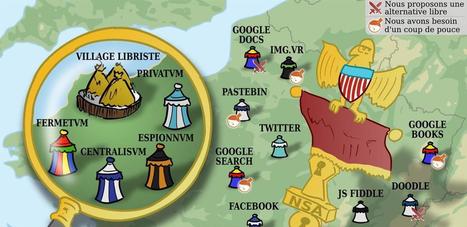

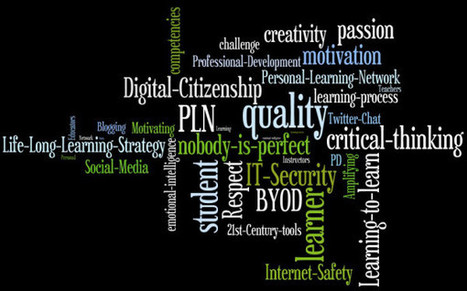


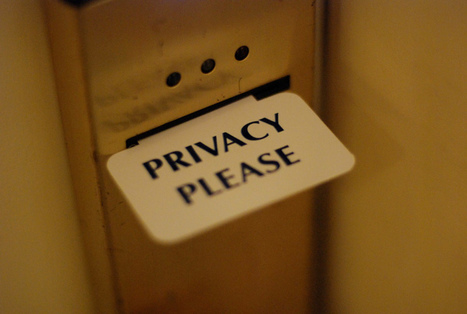


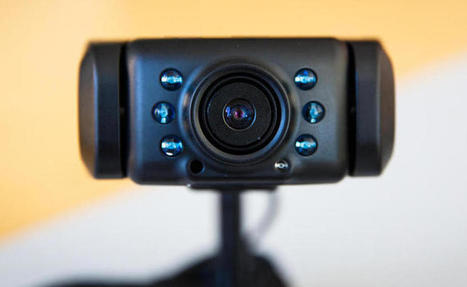

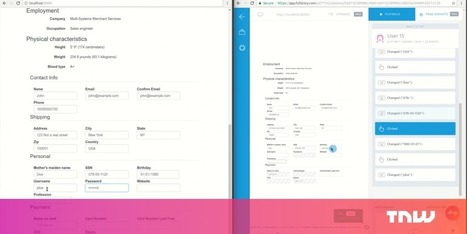
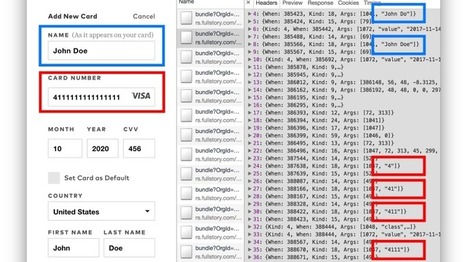










Dès mai prochain, les données personnelles seront mieux protégées en Europe. L'occasion pour de nombreux services de commencer à se poser des questions sur leurs pratiques. Mais comment informer l'internaute sur la réalité des choses ? Nous avons décidé de lancer la réflexion.
Il y a un peu plus de deux ans, nous nous posions une question : et si on dépolluait Internet ? Nous notions en effet depuis plusieurs années que les sites devenaient de plus en plus impraticables du fait d'abus publicitaires et de méthodes douteuses comme la lecture automatique des vidéos ou l'auto-refresh.
Mais cette gêne visuelle en cachait une autre : la collecte massive de données, mise en place à travers les services des géants du Net (Analytics, boutons J'aime, etc.) et d'espaces publicitaires toujours plus automatisés.
Quel avenir voulons-nous pour Internet ?
On le voit aujourd'hui, chaque site peut déposer des dizaines de cookies sans le moindre consentement de l'utilisateur, le tout à travers une centaine de domaines tiers. Pour le vérifier, il n'y a qu'à utiliser des outils comme Kimetrak et regarder les données du navigateur (voir notre dossier).
Ainsi, comme on pouvait le craindre, l'Internet que l'on connaissait il y a 20 ans s'est profondément modifié sur trois points principaux : les plateformes y ont progressivement pris le pouvoir, il y est plus souvent question de commerce que de partage libre des informations et des idées, le tout alimenté par une immense collecte de données personnelles.
Comme c'est le cas dans certaines industries, il existe néanmoins des zones de « résistance ». L'information s'y veut en libre accès, elle doit permettre au plus grand nombre de réfléchir au monde d'aujourd'hui plutôt que suivre les derniers buzz, l'entraide et le travail collaboratif y sont des valeurs centrales et le financement se fait à travers des dons ou des abonnements, l'accès aux données n'étant pas considéré comme un « pétrole à exploiter ».
Malheureusement il n'existe pas vraiment d'élément distinctif fort pour ces sites et services, qui constituent une alternative au tout commercial qui nous entoure désormais dans le World Wide Web.
Un label pour l'Internet propre ?
Faudrait-il créer une sorte d'annuaire ? De label « bio » des services et autres sites en ligne ? Sans doute.
Tout du moins faciliter l'accès et la reconnaissance de ces initiatives en fonction d'éléments qui peuvent être facilement vérifiés : structure économique, modèle de financement, trackers, dispositions légales à travers des outils tels que ToS;DR, etc.
Learn more / En savoir plus / Mehr erfahren:
https://www.scoop.it/t/luxembourg-europe/?&tag=GDPR